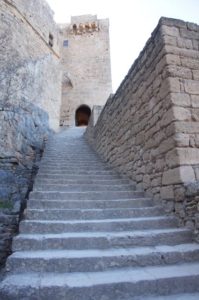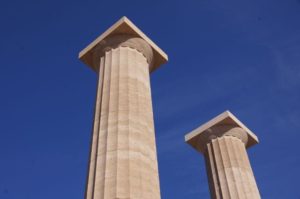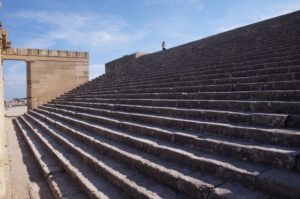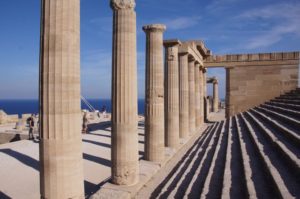 Since my book and kingdom passion is about men, men’s ministry, and kingdom living; I’m constantly on the look out for things God might be doing among men in churches, cultures, para church ministries, etc.
Since my book and kingdom passion is about men, men’s ministry, and kingdom living; I’m constantly on the look out for things God might be doing among men in churches, cultures, para church ministries, etc.
Introducing “Fight Club!” Some friends of mine attend Grace Community Church in our city. It’s an active church with an active men’s group. One of their number invited me to be a part of this semester’s version of Fight Club. I would describe is as men challenging themselves and each other to live vibrant life in Christ. Most of it is done alone, but some of it in community by social media, along with three meetings over a ten week period. I’m finding it challenging, helpful, and rewarding. That’s all I’ll say. We’re supposed to do it, and not talk about it.
 I would say I’m doing it because I was invited, and then felt led to accept the invitation. Also because I’m curious and always on the look for fresh ideas the Spirit might be using to empower and ignite men to relationship and action. But mostly I’d say I’m doing it because, like their pastor Jeff said at a kickoff campfire, “I need the discipline, accountability, camaraderie, and other men in my life” to spur me on in the journey. I also love their core verse of Scripture:
I would say I’m doing it because I was invited, and then felt led to accept the invitation. Also because I’m curious and always on the look for fresh ideas the Spirit might be using to empower and ignite men to relationship and action. But mostly I’d say I’m doing it because, like their pastor Jeff said at a kickoff campfire, “I need the discipline, accountability, camaraderie, and other men in my life” to spur me on in the journey. I also love their core verse of Scripture:
“When I saw their fear, I rose and spoke to the nobles, the officials and the rest of the people: “Do not be afraid of them; remember the Lord who is great and awesome, and fight for your brothers, your sons, your daughters, your wives and your houses.”” (Nehemiah 4:14)
This weeks spiritual assignment was to read a minor prophet’s book (or lesser prophets, as they are sometimes called, simply due to the shorter length of their writings), and discuss it with a friend. That has proved to be a delightful adventure as I have rediscovered these prophet’s lives and times, which are much like our own, as well as some of the important prophecies or insights they gave us by the Spirit of God about their times and times to come. Also insights about the heart and person of God, which they commonly describe as the LORD of heaven’s armies.
I was reading a little about each one, trying to pick one. Then I remembered that an old friend living in Houston and visiting last weekend discussed Zechariah with me. And this morning a gentleman from my Tuesday morning men’s group insisted I read Haggai chapter 2 while we were together. Turns out Haggai and Zechariah were contemporaries, and along with Malachi were the only three prophets to the Jews following their return from seventy years of Babylonian captivity. I picked Haggai.
I’m feeling led to do something I wouldn’t normally do, that is type for you the introduction to The Book of Haggai from my Thomas Nelson, NASB, Open Study Bible. I think you will see in it a lot of interesting conditions that speak to your life today. And it may stir you to read the two short chapters of Haggai, giving the Spirit space and time to speak to you personally, which is a quality of the Bible in general and prophetic Scriptures in particular. Here goes…
Date and Authorship. The author is the only person in the Old Testament named Haggai which means “festive” or “festal.” He is one of the prophets whose personal life is unknown. He is mentioned by Ezra (Ezra 5:1; 6:14). He is the first post exilic prophet who ministered to the remnant that had returned from Babylonian captivity. His prophecy is clearly to be dated 520 B.C., the second year of Darius the king. Haggai was probably born in exile in the early part of the sixth century. His contemporary in the prophetic office was Zechariah (cf. Hag. 1:1 with Zech. 1:1; see also Ezra 5:1; 6:14).
Historical Background. The prophets before the Exile (586 B.C.) foretold the fall of the Judean kingdom to the the new Babylonian empire. It was also revealed that after seventy years the LORD would restore His people to their homeland (Jer. 25:11; Dan. 9:2). When Cyrus the Persian destroyed the Babylonian power, he favored the Jews’ return to the Land of Promise to rebuild the sanctuary in Jerusalem. The foundation of the new temple was laid and the work was begun. Soon hostile neighbors employed their devices to stop the work. The work was halted, but outward opposition was only part of the problem. Indifference seized the fifty thousand exiles who had returned with resolve to build the House of God. When Darius Hystaspis came to the Persian throne, the Temple had been untouched for sixteen years. Haggai (and later Zachariah) was sent by God to awaken the people and stir them from their lethargy to undertake the restoration. It is unfair to Haggai to consider that his messages are solely concerned with matters of building. He begins from that vantage point, but goes on to the glory of the presence of the LORD Jesus Christ, the future establishment of God’s earthly kingdom, the Judgment of God on ungodly world powers, and the blessing awaiting the nations that will return to God.
 There you have it! A beautiful history of the LORD working among the nations of antiquity and especially, intimately, with His covenant people, Israel. He still does this. He is the same yesterday, today, and forever.
There you have it! A beautiful history of the LORD working among the nations of antiquity and especially, intimately, with His covenant people, Israel. He still does this. He is the same yesterday, today, and forever.
Hostile neighbors (or spirits), indifference, lethargy, inattention to God’s Temple or House? Restoration? Sound familiar? Sound like the reason for Fight Club? And for staying close to God, His Word, and the community of believers today?
As you read the two short chapters of Haggai with this background, I pray the Lord give you revelation and personal insight, and “festive” encouragement for a course change or help in living a life “well lived”, a “festal” life. Amen.
********************************************************************************
“…do you not know that your body is a temple of the Holy Spirit who is in you, whom you have from God, and that you are not your own? For you have been bought with a price: therefore glorify God in your body.” (1 Corinthians 6:19–20)
“Now therefore, thus says the Lord of hosts, “Consider your ways!” (Haggai 1:5)


